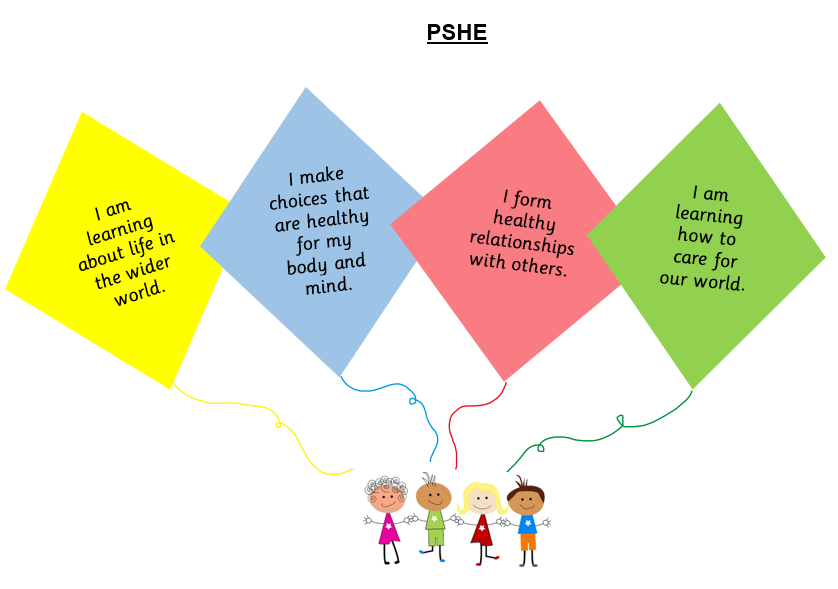Personal, Social, Health Education
PSHE Curriculum Statement
We teach a full PSHE and Wellbeing curriculum from Reception to year 6. It covers all aspects of the children’s social, personal, emotional and health education. Some of these themes will continue into speciality days, such as Hello Yellow Day or Jeans for Genes Day. Children are also taught road safety, water safety and to do basic emergency first aid.
Throughout their time at Bowling Green Academy, children are constantly given opportunities to develop resilience, self- motivation, cooperation with others and their own aspirations, tools that will enable them to leave our school ready for their next stage of education.
Our curriculum is adaptable and inclusive and follows a spiral curriculum, which means that children re-visit key themes and questions as they go through school. This spiral curriculum also ensures that key issues are addressed in an age appropriate way. Bowling Green Academy also involves outside agencies such as Baranardos, the NSPCC and the local police force who can better educate the children in certain aspects of our curriculum.
We will endeavour for our children to leave school well equipped for the emotional challenges they may face by providing them with the building blocks needed for positive and safe relationships, including with family, friends and online. In this way, we will ensure that we help to nurture confident, independent and resilient individuals.
Our Health Education and Relationships Education (including Relationships and Sex Education) strands are taught with resources from the PSHE Association. We believe it is important that children receive content, covering friendships and how to stay safe, in an age-appropriate way. The Relationships Education to RSE is statutory, however, parents have a right to request that their child is withdrawn from Sex Education content (see curriculum overview and key questions). The aim of the content at Bowling Green Academy is designed to equip your child with knowledge and make informed decisions about their wellbeing, health and relationships as well as preparing them for a successful adult life. The world today looks very different for young people than the way it did twenty years ago when the curriculum was last updated – these changes bring the content into the 21st century.
Relationships Education
Relationships Education will put in place the building blocks needed for positive and safe relationships, including with family, friends and online. Your child will be taught what a relationship is, what friendship is, what family means and who can support them. In an age-appropriate way, we will cover how to treat each other with kindness, consideration and respect.
By the end of primary school, your child will have been taught content on:
- Families and people who care for me
- Caring friendships
- Respectful relationships
- Online relationships
- Being safe.
Health Education
Health education aims to give your child the information they need to make good decisions about their own health and wellbeing, to recognise issues in themselves and others, and to seek support as early as possible when issues arise.
By the end of primary school, your child will have been taught content on:
- Mental wellbeing
- Internet safety and harms
- Physical health and fitness
- Healthy eating
- Facts and risks associated with drugs, alcohol and tobacco
- Health and prevention
- Basic first aid
- Changing adolescent body.
Sex Education and PSHCE (Primary)
We believe that pupils should be given the opportunity to access a curriculum which prepares them for the changes that adolescence brings. We are choosing to provide our pupils with a sensitive, age appropriate curriculum which includes the components of Sex Education.
Our aims:
- To prepare pupils for the changes that occur to their bodies, minds and emotions as a consequence of growth from childhood to adulthood.
- To help support young people through spiritual, physical, emotional and moral development.
- To work in partnership with parents, families and the wider community to promote positive relationships and provide effective support for young people.
For more information on Relationships and Sex Education, you may wish to visit the Department for Education website here.
Further details about the Government’s rational and response can her found here.



